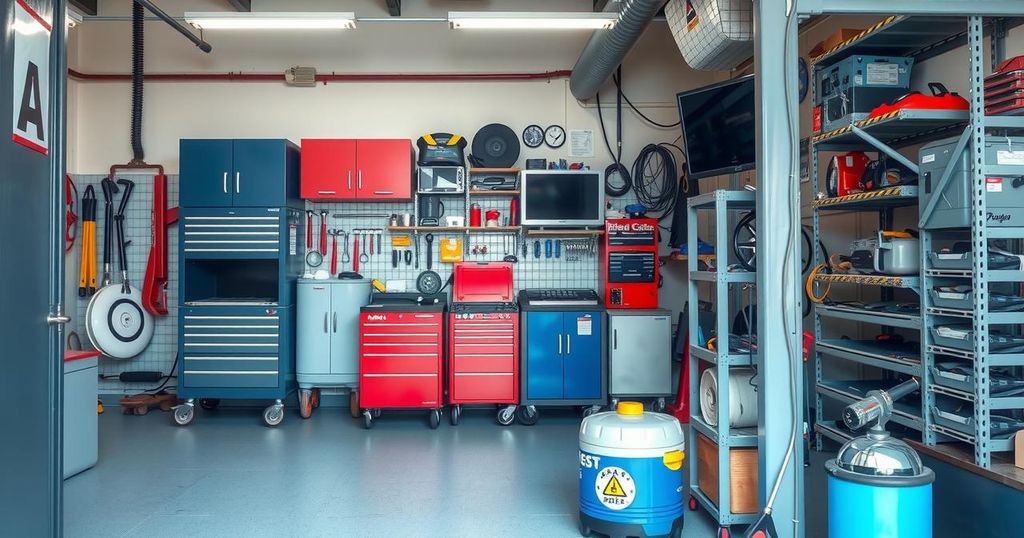Challenges Facing South Africa’s Small Auto Repair Businesses
South Africa’s small auto repair businesses are essential for economic growth and job creation but face significant challenges such as delayed payments and unfair practices from larger companies. Advocacy for ethical procurement and improved payment terms is needed to sustain these crucial enterprises, which are vital for employment, especially among youth. The survival of small businesses in the sector directly impacts job creation and the overall health of the automotive industry.
Small businesses constitute the backbone of South Africa’s motor body repair (MBR) sector, playing a crucial role in economic growth, employment generation, and innovation. Despite their significance, these enterprises face numerous challenges that threaten their sustainability, particularly due to pressures from larger industry players.
Juan Hanekom, the national director of the South African Motor Body Repairers’ Association (Sambra), emphasizes the necessity for improved support measures for small businesses. This includes advocating for ethical procurement practices and more effective payment structures to ensure their growth within the automotive sector.
Small, medium, and micro enterprises (SMMEs) are key players in the automotive landscape, known for introducing innovative solutions and creating jobs. MIBCO’s latest statistics indicate that 74.29% of the 2,030 registered MBR employers have less than ten employees. Moreover, 60.79% are comprised of one to five employees, highlighting their importance in the job market.
Hanekom underscores that these businesses are vital not only for employment but also for meeting national production and localization goals. By embracing innovation and adapting to technological advancements, SMMEs improve the competitiveness and sustainability of the industry.
However, small businesses in the MBR sector encounter escalating challenges, such as delayed payments and unfair rebate conditions imposed by larger organizations. These issues undermine cash flow, hinder growth prospects, and could potentially drive some businesses to closure.
To address these challenges, Hanekom calls for stricter adherence to ethical procurement practices and payment structures that protect small repairers. He warns that the sustainability of the MBR sector hinges on fair business practices, as many small enterprises struggle to cope with the financial burden of delayed payments and detrimental settlement clauses.
With advancements in vehicle technology, compliance costs have risen, intensifying the pressure on smaller businesses facing diminished profit margins. Without financial security and operational stability, SMMEs cannot thrive or contribute effectively to the automotive industry.
Addressing the larger context, while South Africa’s unemployment rate showed a slight decline, the nation grapples with a persistent crisis, especially concerning youth unemployment, which stands at a critical 44.6% among individuals aged 15-34. Establishing supportive policies for small businesses within the MBR sector is essential for enhancing job creation potential in a country marked by high unemployment.
SAMBRA expresses concern that these challenges are also contributing to the exodus of skilled artisans from the industry, compounding the ongoing workforce issues.
In summary, small businesses are integral to South Africa’s motor body repair sector, encompassing vital roles in job creation and economic growth. Nonetheless, these enterprises are increasingly pressured by adverse practices leading to financial instability. Juan Hanekom’s advocacy for ethical procurement and supportive practices is crucial for ensuring the sustainability of these businesses and, consequently, the broader automotive industry. Addressing these challenges will directly influence employment rates and the resilience of the sector.
Original Source: www.zawya.com




Post Comment